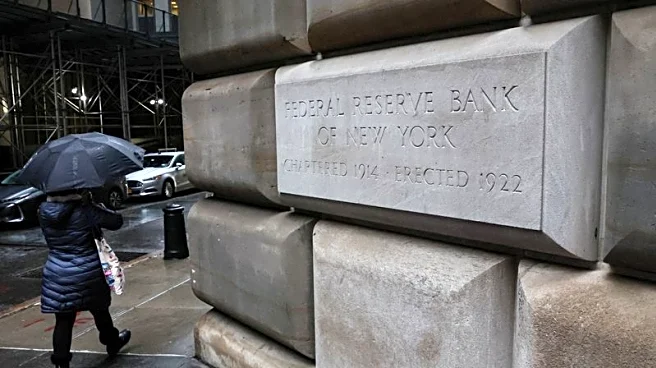What's Happening?
The Punjab and Haryana High Court has suspended the life imprisonment sentence of Rampal, a self-styled godman and leader of the Satlok Ashram in Barwala, Haryana. Rampal, aged 74, was convicted in 2018 for his involvement in the death of a woman follower during a 2014 standoff at his ashram. The court's decision to suspend his sentence comes as a significant relief to Rampal, who has been in jail for nearly a decade. The division bench, comprising Justices Gurvinder Singh Gill and Deepinder Singh Nalwa, cited the inconclusive evidence regarding the cause of the woman's death and the lack of support from her husband and mother-in-law for the prosecution's case. Rampal's age, health condition, and the fact that 13 of his co-accused have already been granted bail were also considered in the decision. His sentence will remain suspended until his appeal is resolved, potentially allowing him to walk free if no other charges are pending.
Why It's Important?
The suspension of Rampal's sentence highlights the ongoing influence and legal challenges surrounding self-styled godmen in India. Rampal, who once worked as a junior engineer before turning to spirituality, has maintained a significant following despite his legal troubles. His case underscores the complexities of legal proceedings involving religious figures and the impact of such cases on their followers. The decision may embolden other self-styled godmen facing legal issues, while also raising questions about the judicial process and the handling of cases involving influential religious leaders. The outcome of Rampal's appeal will be closely watched, as it could set a precedent for similar cases in the future.
What's Next?
Rampal's release is contingent on the resolution of his pending appeal. If the appeal is decided in his favor, he may be released unless other charges are brought against him. The case will likely continue to draw public and media attention, given Rampal's controversial history and the broader implications for religious leaders facing legal scrutiny. Followers of Rampal may rally in support, while critics may call for stricter legal measures against self-styled godmen. The legal community and human rights organizations may also weigh in on the case, potentially influencing public opinion and future legal reforms.
Beyond the Headlines
The case of Rampal sheds light on the broader cultural and ethical issues surrounding the influence of self-styled godmen in India. These figures often wield significant power and resources, attracting large followings with promises of spiritual salvation. The legal battles they face can have far-reaching implications for their followers, who may experience disillusionment or increased devotion depending on the outcomes. The case also raises questions about the balance between religious freedom and the rule of law, as well as the role of the judiciary in addressing allegations of misconduct by religious leaders.











